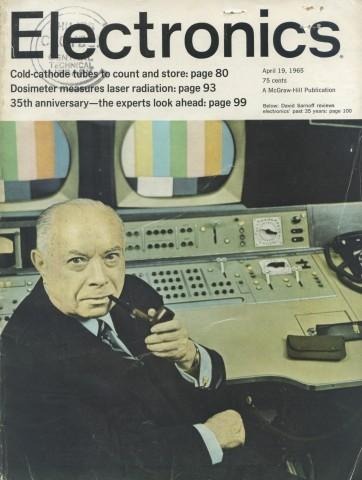Happy 50th Birthday, Moore's Law
In an industry which sees the latest and greatest outdated within months or even weeks, sticking around for fifty years is impressive indeed. Then again, Moore's Law – the infamous observation on how computer chip density increases exponentially over time – is anything but a constant, instead more a ticking metronome that has variously haunted and chivied the electronics world into constant movement.
Back on April 19, 1965, an opinion piece by Gordon E. Moore was included as part of Electronics magazine's 35th anniversary issue. Tasked with making a prediction of how semiconductors would progress over the coming decade, Moore made the argument that the number of transistors in an integrated circuit would double ever year.
When his editorial was first published, Moore was head of R&D at Fairchild Semiconductor; he went on to co-found the company that would become Intel.
In 1975, Moore revisited his prediction, toning down the aggressiveness of growth. Instead of doubling every year, he suggested, density would instead double every two years.
Chip makers and the devices that use their wares have waxed and waned in the decades since, but Moore's Law has remained pretty much steadfast throughout.
Whether, of course, that's entirely down to the strength of Moore's prediction is questionable; its adoption by the electronics industry itself, as a benchmark of development, has meant the actual pace of advance has been carried out in anything but a controlled environment.

Meanwhile the challenges of creating increasingly tiny components and manufacturing them at scale has raised questions around whether Moore's Law can continue in the years ahead, or if it may need to be reworked – or retired – to suit.
Only a few years ago, in fact, predictions that Moore's Law had less than a decade of relevance were made, while in 2010 some heralded parallel computing as the death knell for the engineer's prophesy.
Moore himself is open to the idea of it passing away, in fact. "I see Moore's law dying here in the next decade or so," he said earlier this year, referring to an inevitable saturation which affects every technology.
When that might happen – and what might step in to replace Moore's Law – remains to be seen.
